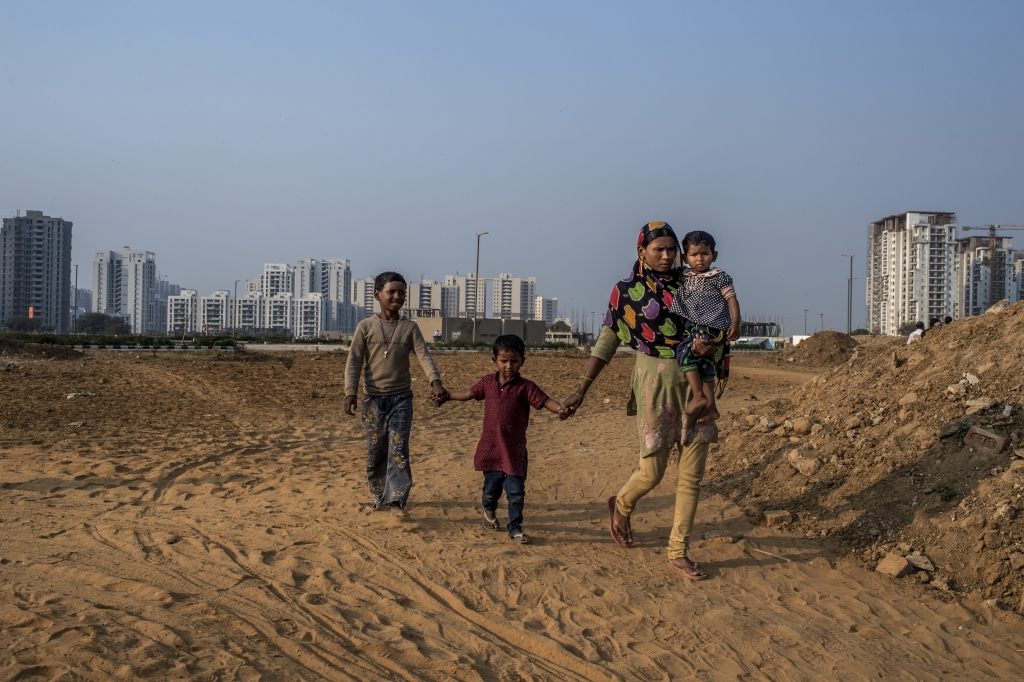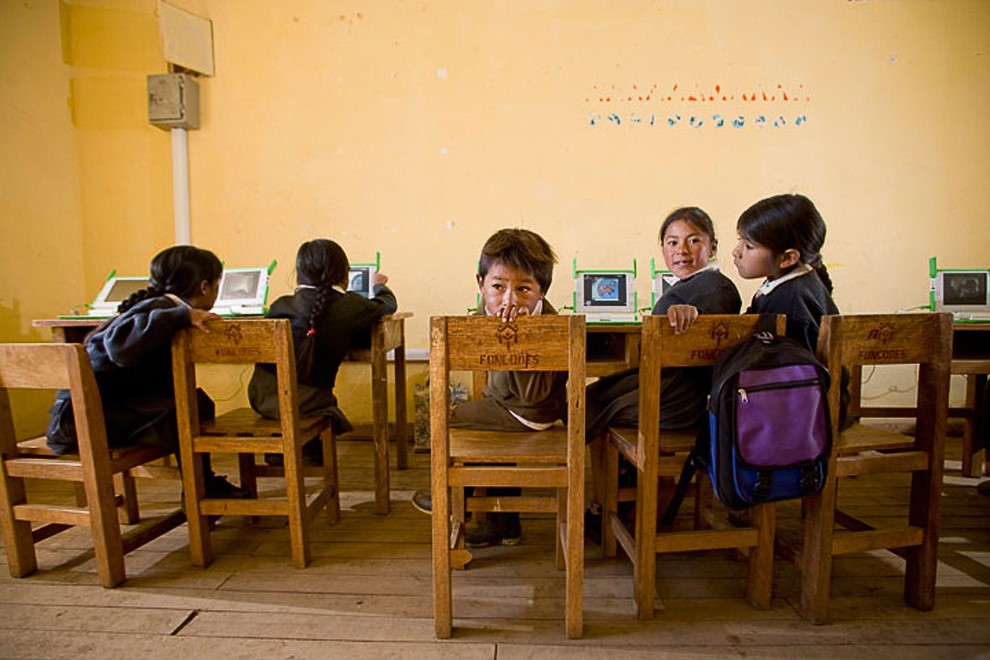Emma Samman and Abigail Hunt, guest bloggers from the Overseas Development Institute (ODI), summarise a recent ODI blog series on Women, Work and Economic Empowerment. The blog series features contributions from diverse stakeholders who produce and/or use gender data to give perspectives on the experiences and preferences of women with the aim that the information can inform policymaking.
Following the adoption of SDG 5 on gender equality and women’s empowerment, efforts have been ramped up to push forward progress on women’s economic empowerment. The UN Secretary-General’s High-Level Panel on Women’s Economic Empowerment galvanized much-needed support for this agenda, and many across the development sector are starting to sit up and take note.
Yet progress is often hampered by a lack of understanding about the realities of women’s lives – particularly those most at risk of being left behind by development.
Following a round-table discussion on ‘Data for Women’s Work and Economic Empowerment’ hosted by Gallup, the International Labour Organization (ILO) and Overseas Development Institute (ODI), we invited participants and other experts to contribute to a blog series setting out their top priorities to fill policymakers’ knowledge gaps – and ensure their decisions are based on data.
Here is a flavor of the perspectives that emerged.

Improving official statistics
Marta Chen and Joan Vanek from WIEGO highlight the desirability and feasibility of measuring women’s informal work as a route to improving working conditions – both in the Global North and the Global South. Their recommendations center on promoting WIEGO and ILO efforts to define relevant standards, collect data and synthesize what is known to date about informal employment among women and men. Taking a broader perspective, Alba Bautista and Gayatri Koollwal stress how little is known about time use and the nature of work amongst rural women who comprise 43% of the agricultural workforce. They highlight the efforts of the newly-formed Data2X, FAO, ILO and World Bank ‘Women’s Work and Employment’ partnership to implement new global standards on how paid and unpaid work are adopted and implemented.
Complementary data
Other contributors highlighted the importance of unofficial data in complementing official data to add further insight into women’s lives. Julie Ray of Gallup shares results of the ‘first-ever account of how men and women worldwide think and feel about women and work’, undertaken by Gallup and ILO. Some 70% of women world-wide said they would prefer to work in a paid job or to combine paid work with care of their families and housework, and nearly an equal share of men preferred this for women too. The ‘balance between work and family’ and ‘unfair treatment at work’ emerged as paramount challenges.
Developing sharper policy responses to such constraints, Léa Fuiret of the OECD argues, requires focused data collection – particularly on contentious areas such as social norms. She gives the example of Burkina Faso, where a recent survey uncovered attitudes that strongly endorsed the role of women at home and men as providers. In turn, Janet Hunt from the Australian National University, proposes new data collection to feed into a new poverty measure, the Individual Deprivation Measure. The IDM is designed to reveals multidimensional deprivations through a gender lens in a way that is readily accessible to policy makers.
Other contributors described the potential for programmatic data to hold decision-makers to account. Carron Mann describes Women for Women’s collection of disaggregated data from marginalized women survivors of conflict. She points to the need for flexibility in identifying ‘left behind’ populations, for gathering detailed information on their specific circumstances to ensure these are understood by policymakers, and for focusing efforts on economic empowerment, not simply increased economic participation. Maria Tsirantonaki and Theo Morrissey from ITUC argue that trade unions have an important role. This involves highlighting differences between official data and their own ‘on the ground’ monitoring, providing relevant evidence (e.g., on the value of investments in care) and ensuring women’s voices are heard in policymaking processes.
Issues the current agenda neglects
Despite increased attention to women’s economic empowerment, some critical building blocks of progress remain neglected by the dominant development narrative. Chiara Capraro from Womankind Worldwide argues that many interventions focus on shifting gendered social norms within households to the exclusion of its macroeconomic dimensions. She argues that recognizing and reducing women’s unpaid care requires looking at the bigger picture, including analyzing the gendered impact of investments in universal public services and infrastructure, and fully accounting for policies such as cuts to public expenditure.
Representing FEMNET, Dinah Musindarwezo suggests the energy and ambition the SDGs bring to gathering better data on women’s economic empowerment may not be enough – in part because of a narrow understanding of the agenda (in her experience, largely reduced to entrepreneurship), inadequate measures (e.g., an emphasis on labour force participation that neglects the impact of unpaid care), and a focus on individual women rather than structural barriers to their collective empowerment – such as global trade imbalances and macro-economic policies. Her call is for gender data to assess the ‘extent to which systems and structures that keep women disempowered are being transformed’.
Finally, Alison Holder from Equal Measures highlights the need to ensure that voices and priorities from the grassroots are being reflected in agenda-setting around data gaps and to learn from policy makers about the barriers they face in using data for policymaking.
Translating data into action
The realities of how data is used was also demonstrated by those implementing programmes to support women’s economic empowerment. Kathleen Noonan describes a survey that Microsoft Europe carried out in nine countries with 11,500 girls seeking to understand why their interest in STEM subjects tends to wane in early adolescence. This research uncovered the need for better role models, support from parents and teachers, knowing more about real-world STEM applications and believing that they would be treated equally as men working in STEM. Microsoft is now using this information in tailoring partnerships with NGOs in Europe and their own programmes, such as DigiGirlz.
Finally, Kate Cooper described DFID’s effort to work with UK and global business to increase opportunities for women throughout their supply chains, through their new ‘Work and Opportunities for Women’ (WOW) programme. Taking this forward however, will require better information on where women are situated in supply chains and what constraints they face – clearly demonstrating the circular relationship between data and programmatic initiatives on the ground.
Advancing economic empowerment offers great potential for transformative change in women’s lives. Yet this conversation has shown that more effort is needed to make sure that initiatives to support change are rooted in women’s realities and priorities. The consensus is that better data is pivotal in making this happen.
Following a round-table discussion on ‘Data for Women’s Work and Economic Empowerment’ hosted by Gallup, the International Labour Organization (ILO) and Overseas Development Institute (ODI) in July, the ODI’s Growth, Poverty and Inequality Programme invited participants and other experts to contribute to a blog series setting out their vision and practical actions to increase the role of data in fulfilling policymakers’ knowledge gaps to further women’s work and economic empowerment.
Emma Samman is a Research Associate at the Overseas Development Institute. Her recent work focuses on analysis of the Sustainable Development Goals and on diverse aspects of women’s economic empowerment – including women’s experiences of digitally-mediated work, the care economy and data needs for SDG monitoring.
Abigail Hunt (@abiehunt) is a Research Fellow within ODI’s Growth, Poverty and Inequality Programme specialising in women’s empowerment and gender equality. She previously worked with Womankind Worldwide and the European Women’s Lobby in policy-focused roles, and as gender adviser to the Ministry of Women and the Secrétariat permanent des organisations non gouvernementales in Burkina Faso.
The views expressed in this post are those of the author and in no way reflect those of the International Development LSE blog or the London School of Economics and Political Science.





